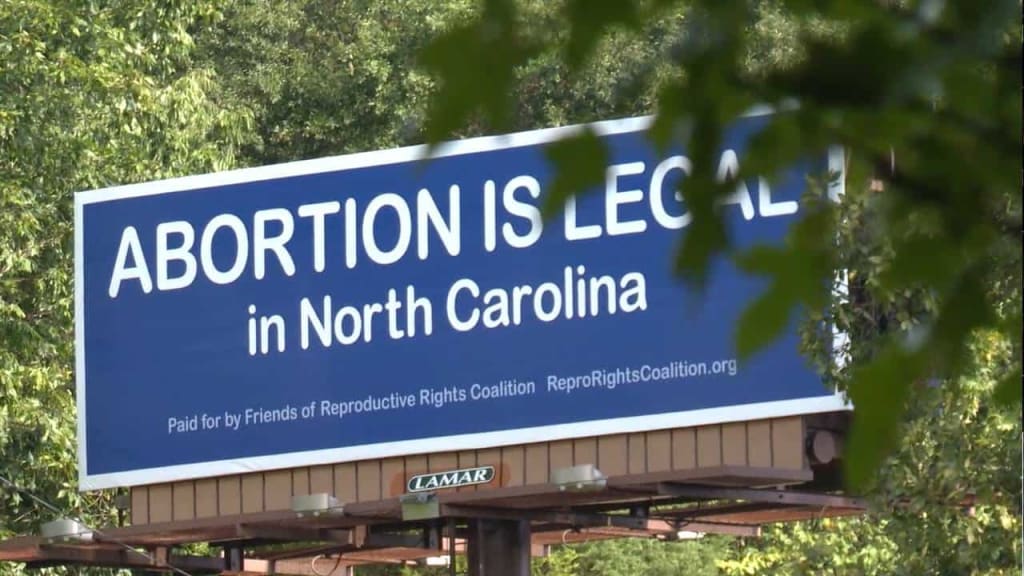
Introduction
Abortion laws are a complex and contentious issue in the United States, and North Carolina is no exception. Understanding the legal framework surrounding abortion is crucial for individuals seeking reproductive healthcare and for those interested in women's rights. In this article, we will explore the intricacies of North Carolina abortion laws, their historical context, the current regulations, and their impact on women's health and access to care.
Historical Background
North Carolina's abortion laws have evolved over time, reflecting the changing societal attitudes and legal landscape. It is important to delve into the historical background to comprehend the present situation fully. Landmark court cases such as Roe v. Wade and Planned Parenthood v. Casey have played a significant role in shaping the abortion laws not only in North Carolina but also nationwide.
Current Abortion Laws in North Carolina
North Carolina has implemented various regulations and restrictions on abortion, which can significantly impact individuals seeking reproductive healthcare. These laws include mandatory waiting periods, counseling requirements, and restrictions on late-term abortions. We will explore these regulations in detail, examining their implications for women's autonomy and access to safe and legal abortion services.
Parental Involvement
For minors seeking abortion, parental involvement laws are of particular importance. North Carolina has specific requirements regarding parental consent or notification for a minor seeking an abortion. However, certain exceptions exist, considering the unique circumstances that some young individuals may face. Understanding these laws is crucial to protect the rights and well-being of young women in the state.
Access to Abortion Services
Access to abortion services is a critical aspect of reproductive healthcare. In North Carolina, the availability of abortion clinics has been affected by various factors, including targeted regulations and clinic closures. We will discuss the impact of these developments on women's ability to access safe and legal abortion services, particularly in rural and underserved areas.
Late-Term Abortion
Abortion performed after a certain gestational age is a topic of significant controversy. North Carolina, like many other states, has enacted restrictions on late-term abortions. However, exceptions are provided in cases of maternal health risks or severe fetal abnormalities. We will examine the regulations surrounding late-term abortions in North Carolina and the potential implications for women facing difficult and complex situations.
Protests and Controversies
Abortion laws often evoke strong emotions and lead to protests and demonstrations by both pro-life and pro-choice advocates. North Carolina has witnessed its fair share of controversies surrounding abortion. By understanding the perspectives and motivations of these groups, we can gain insights into the broader societal dynamics surrounding the issue.
Impact on Women's Health and Safety
Restrictive abortion laws can have adverse effects on women's health and safety. In this section, we will explore the potential consequences of North Carolina's abortion regulations on the well-being of individuals seeking abortion care. Additionally, we will discuss the safety measures in place to ensure that abortion procedures are conducted under appropriate medical standards.
Public Opinion and Political Landscape
Public opinion and political dynamics play a significant role in shaping abortion laws. We will examine the attitudes of North Carolina residents toward abortion and the influence of politics on legislation. Understanding these factors is crucial for evaluating the potential for change in the future and the implications for reproductive rights.
Constitutional Challenges
The constitutionality of abortion laws is a topic of ongoing debate and legal challenges. We will explore recent court cases and constitutional arguments made against North Carolina's abortion laws. These challenges have the potential to reshape the legal landscape and impact future regulations surrounding abortion in the state.
Reproductive Rights Advocacy
Various organizations and resources support reproductive rights and provide assistance to individuals seeking abortion care. We will highlight these organizations and discuss the role they play in advocating for reproductive justice. Furthermore, we will provide information on how readers can get involved and contribute to the protection of reproductive rights.
Comparison with Other States
By comparing North Carolina's abortion laws with neighboring states, we can gain a broader perspective on the regional variations in regulations. This analysis will shed light on the potential impact of interstate travel and the challenges faced by individuals residing near state borders.
Consequences of Restrictive Abortion Laws
Restrictive abortion laws can disproportionately affect marginalized communities and individuals with limited resources. We will explore the consequences of these laws, including potential disparities in access to care and their broader societal implications. Understanding these issues is vital for addressing inequities in reproductive healthcare.
Abortion and Women's Autonomy
Women's autonomy and their right to make decisions about their reproductive health are central to the abortion debate. We will discuss the importance of autonomy and agency in reproductive decision-making, considering the ethical considerations and personal perspectives surrounding abortion.
Conclusion
In conclusion, North Carolina's abortion laws are a complex and multifaceted topic. By examining the historical background, current regulations, and their impact on women's health and access to care, we gain a comprehensive understanding of the subject. It is crucial to continue discussing and advocating for reproductive rights to ensure equitable access to safe and legal abortion services for all individuals.





Comments
There are no comments for this story
Be the first to respond and start the conversation.